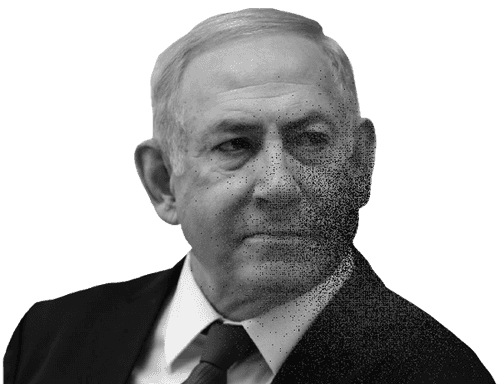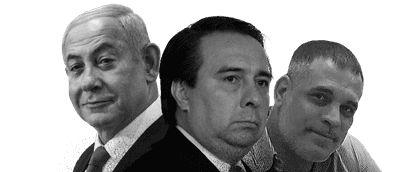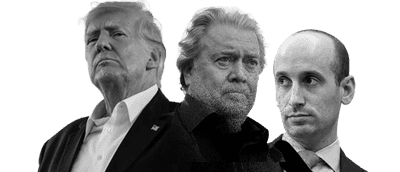Cambridge Analytica was a British data analytics firm with murky inner workings, created around 2013 with an initial focus on US elections. Former CEO Alexander Nix created Cambridge Analytica as an offshoot of the Strategic Communications Laboratories (SCL) Group. SCL is a government and military contractor founded more than 25 years ago that says it works on everything from food security research to political campaigns, where he was a former director. Hedge fund billionaire and Republican donor Robert Mercer backed the organization with $15 million and future Trump White House adviser Steve Bannon chose its name.
In 2014, Cambridge Analytica started running focus groups to test messages for U.S. midterm elections. Christopher Wylie, who would go on to become the whistleblower on the Cambridge Analytica Facebook scandal, recalled that voters in these groups “responded to calls for building a new wall to block the entry of illegal immigrants, to reforms intended to ‘drain the swamp’” of American politics, and to “thinly veiled forms of racism” toward Black Americans.
Those narratives became pillars of Donald Trump’s campaign for the 2016 election, and while Bannon was working for Donald Trump’s campaign, they paid Cambridge Analytica millions of dollars. In 2016, Bannon’s financial disclosure revealed that he received more than $125,000 in consulting fees from Cambridge Analytica in 2016 and owned “membership units” in the company worth between $1 million and $5 million. An internal company document obtained by The Guardian revealed that the firm utilized “intensive survey research, data modeling and performance-optimization algorithms,” targeting “10,000 different ads to different audiences in the months leading up to the election. The presentation bragged that the ads were viewed billions of times.
But Cambridge Analytica and its tactics quickly became mired in scandal. In 2018, Christopher Wylie told news outlets that Cambridge Analytica “exploited Facebook to harvest millions of people’s profiles. And built models to exploit what we knew about them and target their inner demons.” By applying “psychographic” analytics to their dataset, the organization claimed to be able to determine people’s personality types and then individually micro-target messages to influence their behavior.
Wylie asserted that both Bannon and Rebekah Mercer, daughter of Robert Mercer, participated in conference calls in 2014 in which plans to collect Facebook data were discussed. In the meetings, the executives boasted that Cambridge Analytica and SCL had worked in more than 100 elections in over 30 countries across the world. These include Argentina, Colombia, and Kenya, where SCL reportedly carried out a political research project covering 47,000 respondents and used the results to help President Uhuru Kenyatta achieve office in 2013 and 2017. Though the firm denied it, a 2020 leak revealed its active involvement in pushing UK voters to vote for “Brexit,” the country’s exit from the EU.
In 2016, SCL CEO Mark Turnbull sent an email in which he wrote that the firm and its subsidiaries had a recent track record including “advising the Brexit campaign.” A 2016 London TV station additionally unveiled an undercover investigation showing CEO Nix, who’d been secretly filmed in hotel meetings, discussing how the firm could entrap politicians through bribes and sex workers. He also described how having obtained damaging material on opponents, Cambridge Analytica could discreetly push it onto social media and the internet. He said: “… we just put information into the bloodstream of the internet, and then, and then watch it grow, give it a little push every now and again… like a remote control.” The EU Parliament summoned and grilled Facebook CEO Mark Zuckerberg over its “catastrophic failure” to protect user data, the UK government banned Nix from running companies for seven years, and Cambridge Analytica shuttered in 2018.
But while Cambridge Analytica may no longer be operational, the tactics and networks the company utilized remain alive and well. Leaked emails from the Cambridge Analytica scandal indicated that the firm worked closely with other actors to expand the technological abilities and reach of their work. Among these was a person former CEO Alexander Nix described as “Jorge” in emails: the head of a team of “Israeli black-ops” who supplied Cambridge Analytica with information from the hacked emails of politicians. It was only in 2023 that a consortium of investigative journalists finally uncovered the true identity and details of “Team Jorge”: a covert team of primarily Israeli contractors, connected through underground channels, who have manipulated over thirty national-level elections across the globe through hacking and widespread misinformation campaigns on social media. Their leader “Jorge” is Tal Hanan, the CEO of the Israeli state security and intelligence firm Demoman International.
While it remains unclear how many campaigns Team Jorge worked on, it is clear that Tal Hanan and his colleagues collaborated with Cambridge Analytica to provide hacking and misinformation services at the height of the firm’s power. They supported, for example, Cambridge Analytica’s meddling in the 2015 Nigerian presidential elections. While Cambridge Analytica focused on swaying the public narrative, Team Jorge provided “opposition research”, hacking the phones of leaders in Buhari’s All Progressives Congress party (APC) to support the presidential bid of Good Luck Jonathan. Leaked emails also confirmed that Team Jorge hacked the In 2017, Team Jorge offered Cambridge Analytica an automated system which created social media avatars to disseminate campaign narratives and misinformation – a software which later developed into Advanced Impact Media Solutions (AIMS), a database of over 30,000 virtual people commenting across social media platforms. Since its time working with Cambridge Analytica, Team Jorge has only expanded its reach and continues to operate within a web of private Israeli cyber surveillance firms that have influenced politics across the globe.





